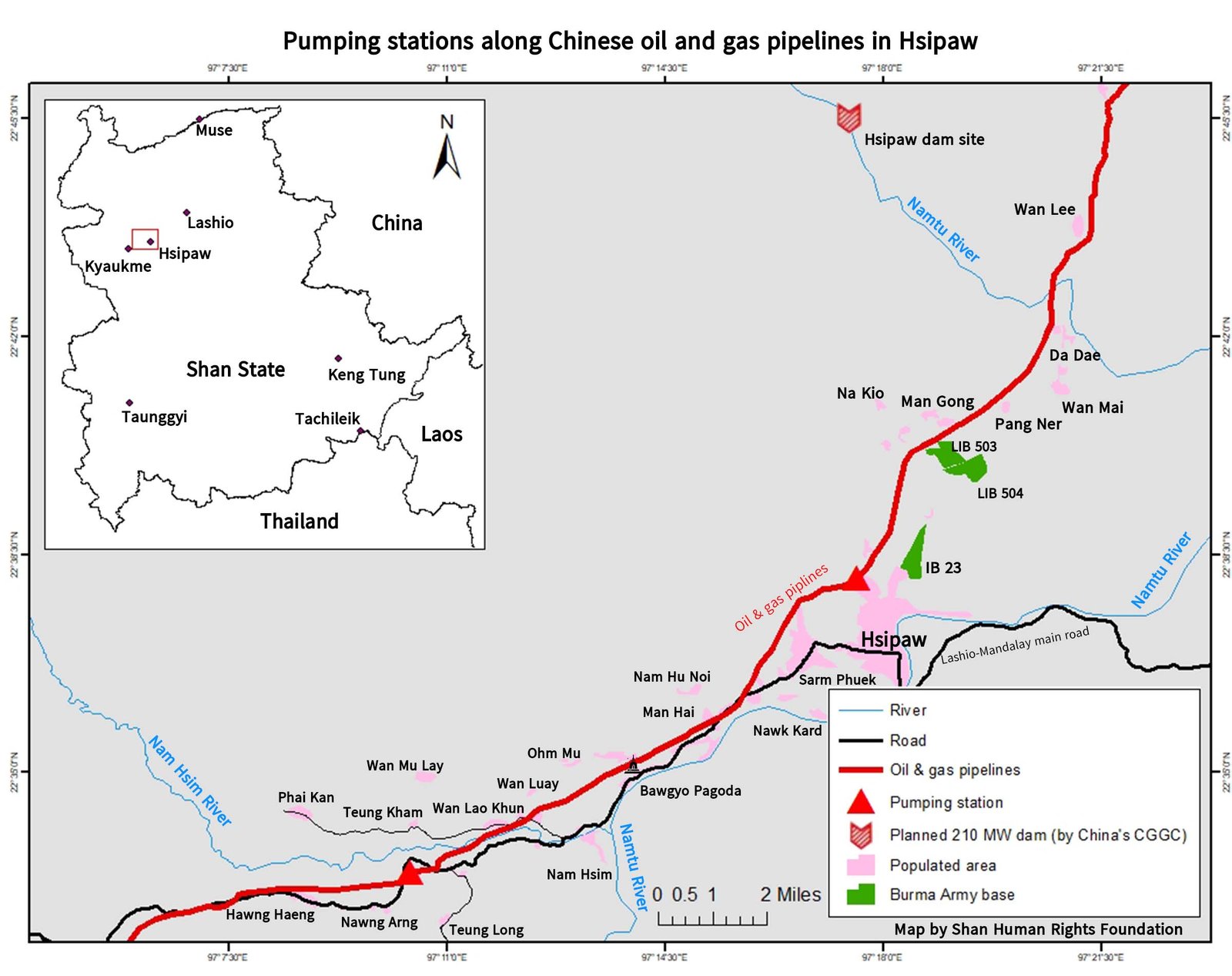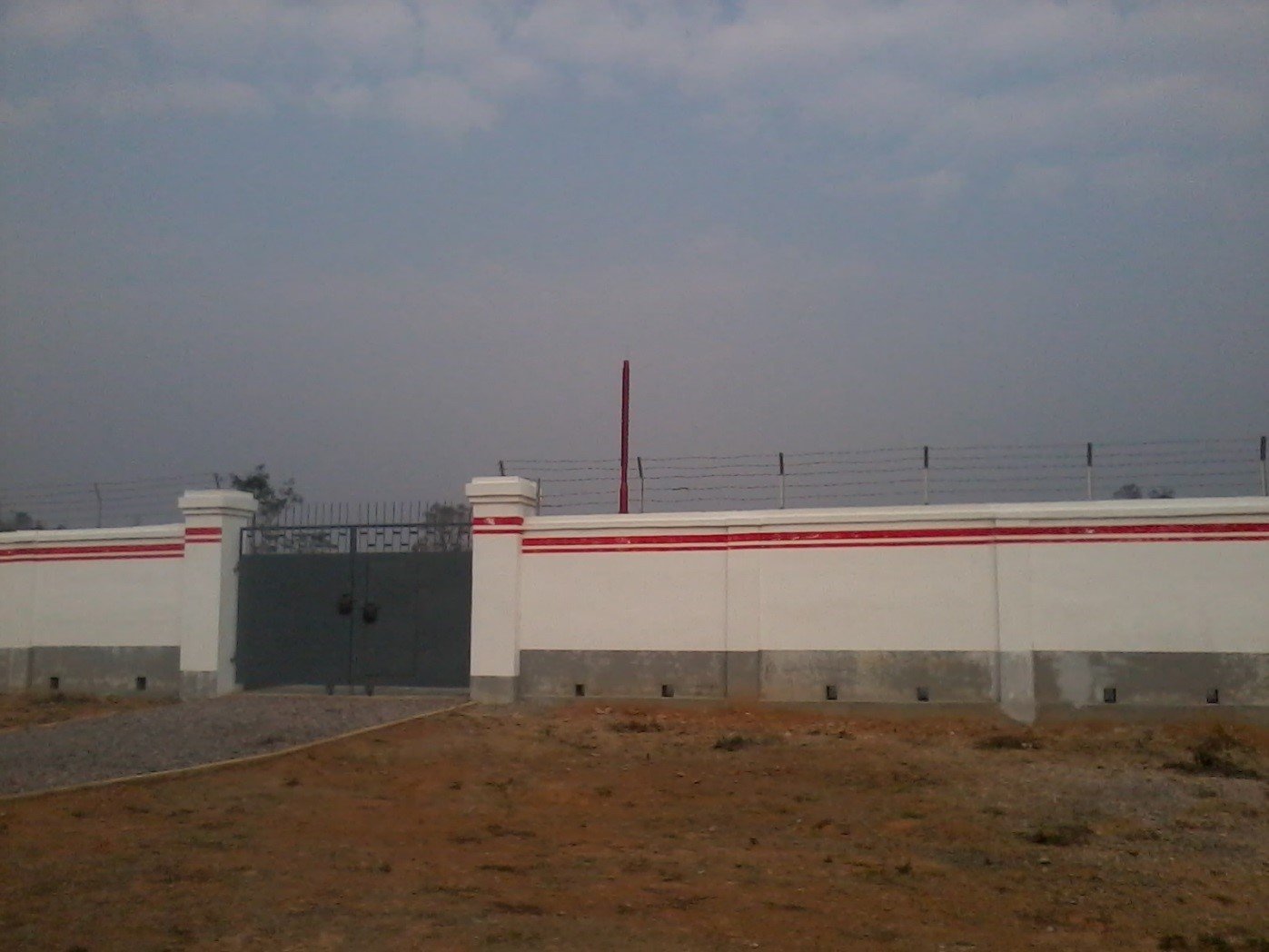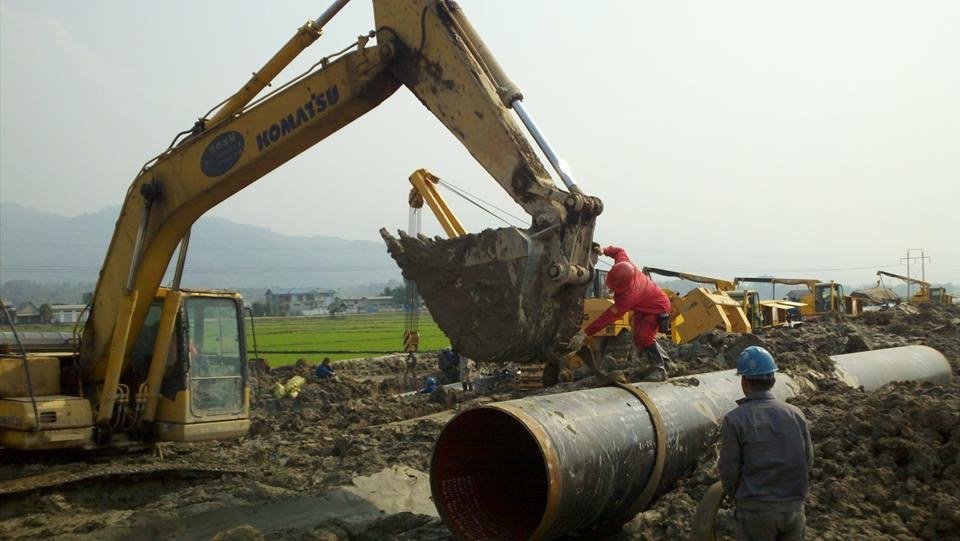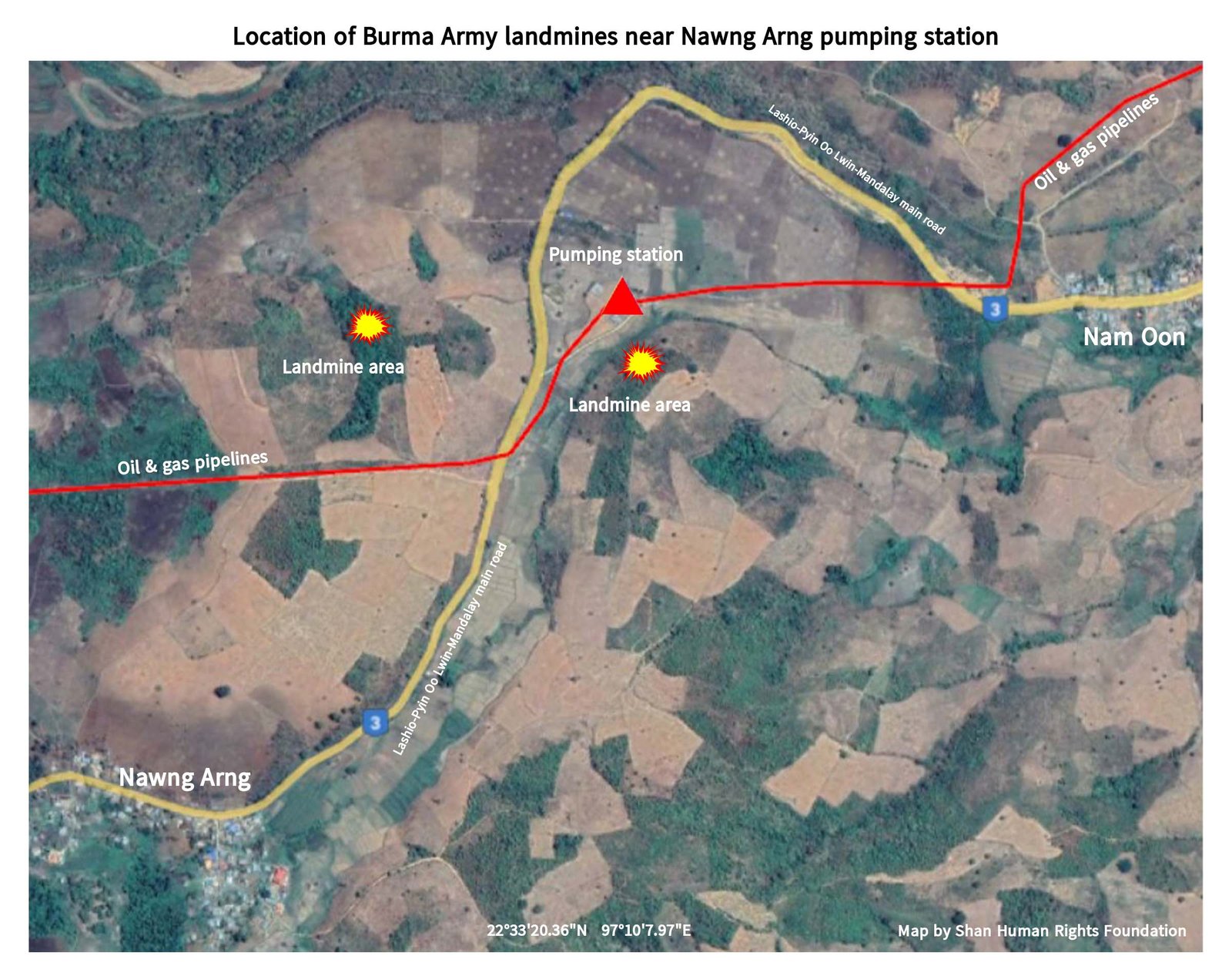Update by the Shan Human Rights Foundation
January 18, 2022
Villagers’ security threatened by Burma Army landmines along Chinese pipelines in Hsipaw, northern Shan State
Local villagers are living in fear of stepping on landmines recently planted by Burma Army troops along China’s oil and gas pipelines in Hsipaw township, northern Shan State.
About two months ago, a Burma Army sergeant summoned the headman of Hawng Haeng village tract to the pipeline pumping station near Nawng Arng village, about 15 kilometers west of Hsipaw town, where about 20 Burma Army troops, from IB 23 and LIB 503 and 504, are providing security. Before the coup last year, there were no troops posted at the station.
The sergeant informed the headman that landmines had been laid in wooded areas near the pumping station, on the west and east of the Lashio-Mandalay highway, and that villagers should avoid these areas.
Local villagers are therefore now unable to access these wooded areas to find firewood and mushrooms, and to hunt wildlife. Those with farms nearby are also fearful of treading on mines laid close to their land.
The villagers have begged the Burma Army troops to remove the mines, but they have refused, saying: “This is for our security,” and “We will remove them when we leave the area.”
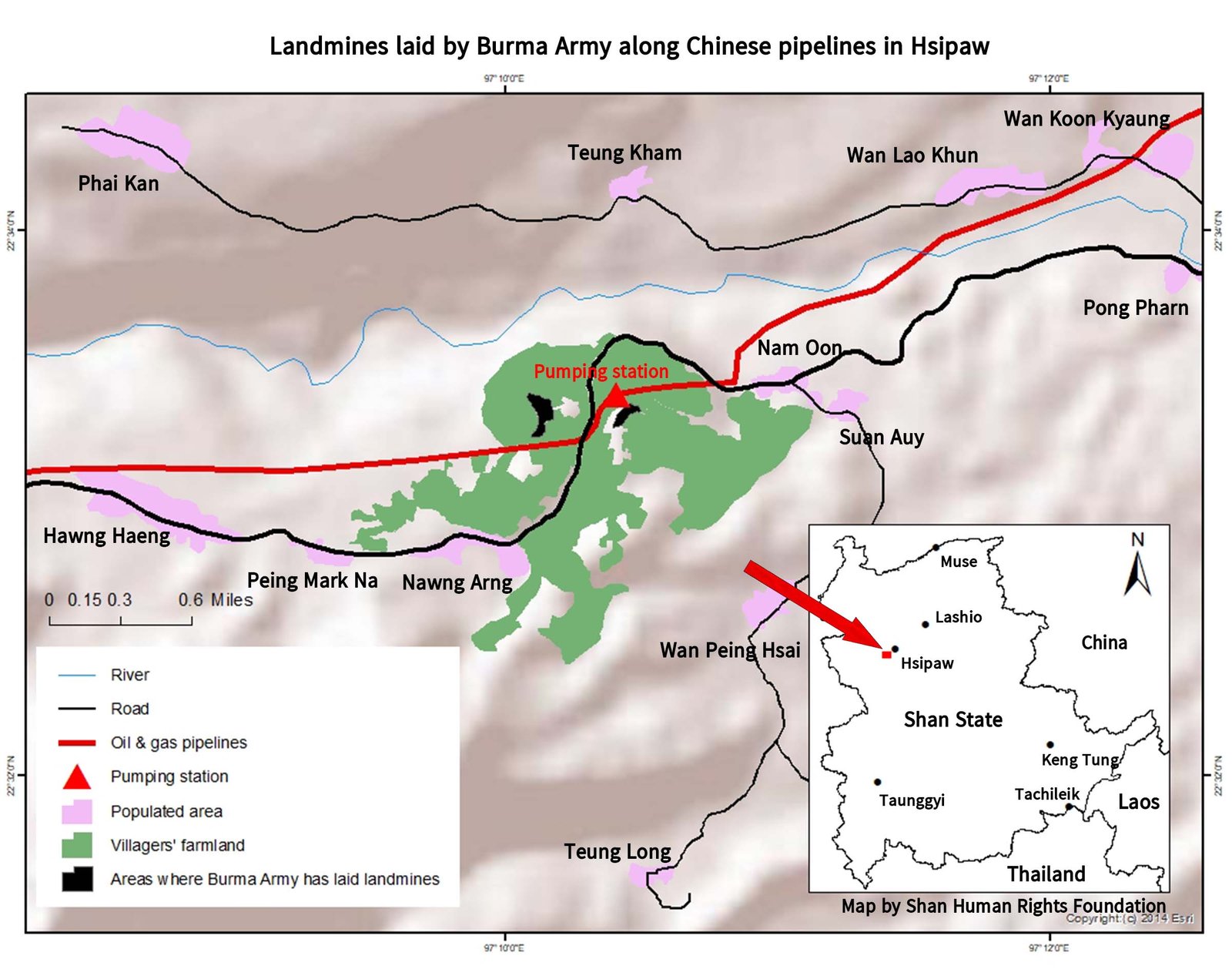 There are about 1,800 local villagers in Hawng Haeng village tract, which is comprised of Nawng Leng, Wan Hsai, Teun Long, Nawng Arng and Hawng Haeng villages.
There are about 1,800 local villagers in Hawng Haeng village tract, which is comprised of Nawng Leng, Wan Hsai, Teun Long, Nawng Arng and Hawng Haeng villages.
There is another pipeline pumping station about 1 kilometer north of Hsipaw town, at Wan Mai village, where Burma Army troops have also been posted for security. However, they have not informed local villagers about the planting of any landmines nearby.
A third of the 800-kilometer pipeline route from the Arakan coast to the China border crosses northern Shan State. Construction of the pipelines from 2011 and 2013 caused large scale disruption of local farming livelihoods, and in 2013, the Northern Shan Farmers’ Committee submitted a petition to the Shan State chief minister calling for the project to be stopped, but this was ignored.
One of the main fears of villagers living along the pipelines is the possibility of dangerous leaks and explosions. In December 2012, hundreds of farmers, MPs and monks gathered north of the famous Bawgyo temple, in Hsipaw township, to pray for protection against harm from the pipelines being laid only 150 meters from the temple. Bawgyo (from the Shan name “Bawger” meaning salt well) is famous for salt farming, and locals feared that salt deposits in the ground would cause corrosion and rupture of the pipelines.
In the past week, armed conflict has broken out close to the Nawng Arng pumping station, and shells have landed around the pipelines. This has renewed fears among local villagers that the pipelines might explode, causing large-scale damage and loss of life.
Contact:
Sai Hor Hseng +66: 94-728-6696 (Shan, English)
Sai San Loi +66: 88 680 4913 (Shan, Burmese)
PDF files:


